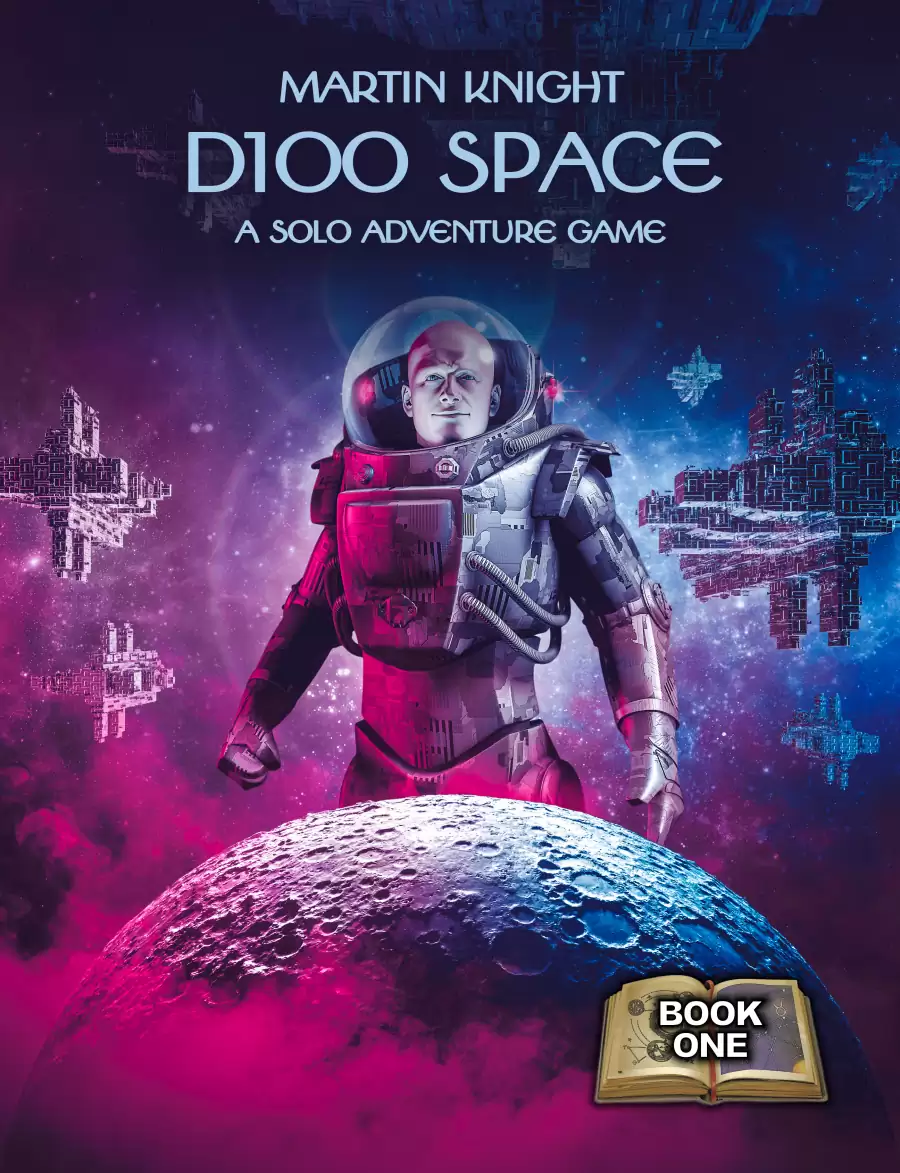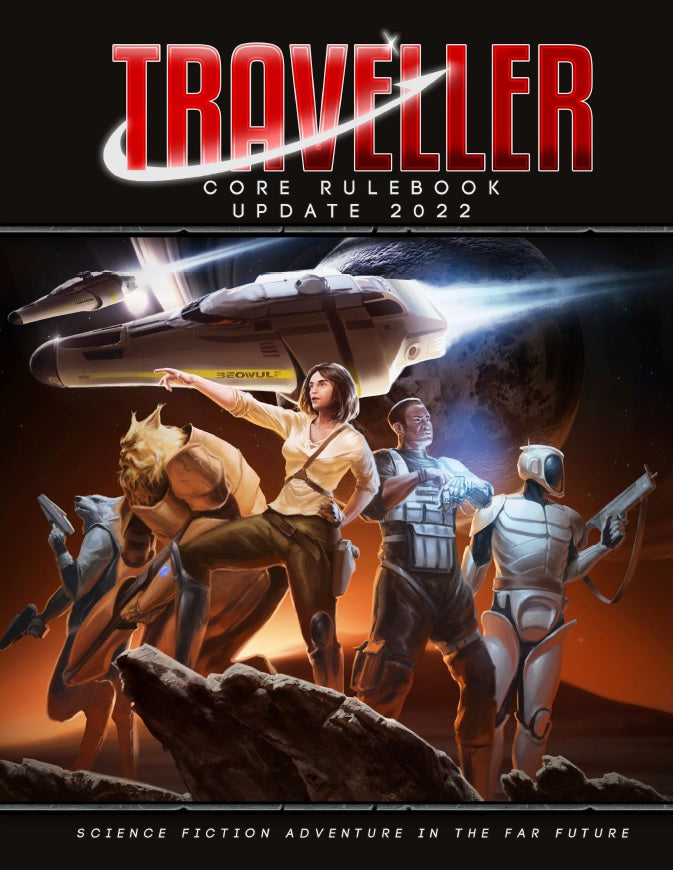D100 Space Science Fiction; Space Opera; Dark; Exploration-Driven; Tactical; Resource Management; Solo Play
D100 Space is a solo-focused tabletop roleplaying game set in a vast, explorable galaxy. It uses a d100 system similar to D100 Dungeon, emphasizing resource management, tactical decision-making, and exploration. While designed for solo play, its core mechanics and setting elements can be adapted for group play. The game's design evokes a sense of old-school, random event-driven gameplay, which may appeal to some while deterring others seeking a more streamlined experience. The game focuses on captain managing dangerous operations, trade, mining and space battles.
Theme and Setting
D100 Space casts players as captains of starships navigating a galaxy ripe with opportunity and danger. The setting emphasizes exploration, trading, and combat encounters across numerous star systems. Players manage resources, complete operations, and engage in space battles to gain wealth and notoriety. It emphasizes a science fiction theme with space opera elements. Dead planets, moons, and worlds provide multiple locations to interact with.
Core Mechanics and Rules
D100 Space builds upon the familiar d100 system, where players roll percentile dice and aim to roll under their skill values to succeed. Character progression involves completing training operations and undertaking increasingly challenging missions across the galaxy. The game features two core phases: galaxy exploration and interaction, and away missions where the captain explores complexes, facilities, or enemy starships. It shares mechanics with D100 Dungeon, but adapts them to a spacefaring setting. D100 Space also includes systems for trading, mining, and fighting fierce space battles.
What Makes It Unique
D100 Space stands out as a solo adventure game centered around space exploration and captain management. Its design allows for emergent storytelling through random encounters and procedural generation. The game blends elements of resource management, tactical combat, and exploration, providing a varied gameplay loop. The detailed starship design system allows for customization, while the alien creation rules spark creativity.
The ability to generate planets and alien species from scratch enables players to create unique settings. The game system also offers a good groundwork for future expansions and additions to the core game.
While the system is mainly for solo play, aspects can be incorporated into other d100 systems.
Target Audience and Player Experience
D100 Space primarily targets players who enjoy solo roleplaying experiences with a focus on exploration, resource management, and tactical decision-making. It appeals to those who appreciate the old-school, random event-driven gameplay reminiscent of games like D100 Dungeon. However, some players may find the multiple rolls required for simple actions tedious, preferring a more streamlined approach. Players looking for a modern solo Sci-Fi RPG should check it out, especially if they enjoy detail-oriented gameplay.
Character intellect is extremely important, and is only balanced if you want to play a character 'organically'.



